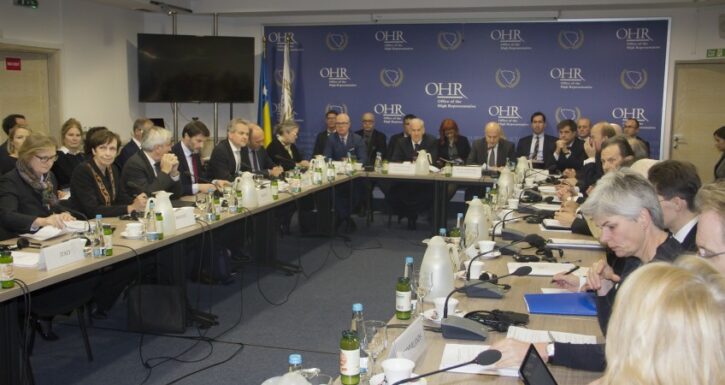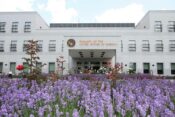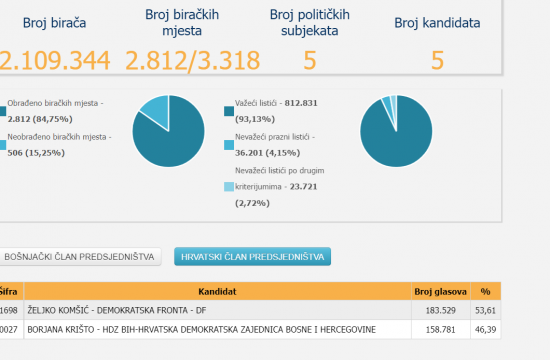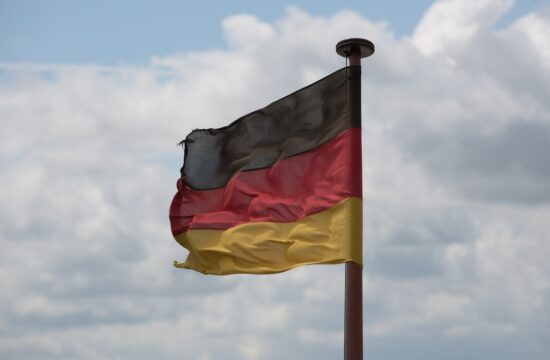
International officials overseeing the implementation of Bosnia’s 1995 peace agreement welcomed on Wednesday the nomination of the country’s prime minister which came after a year-long quarrel over Bosnia’s potential NATO membership.
The Peace Implementation Council Steering Board (PIC SB), made up of foreign ambassadors and heads of international organizations in Bosnia, also welcomed the decision reached by the country’s three presidency members to submit to NATO a program of reforms it intends to implement.
The document represents a compromise between Bosnian Serb political leaders who refuse to allow the country to enter NATO and their Bosniak and Bosnian Croat counterparts who insist on it.
The quarrel left the country without a government for a year after elections in October 2018. Now that it has been adopted, the government – in Bosnia called the Council of Ministers – can be formed.
“The PIC SB expects that, with the unblocking of the formation of the BiH Council of Ministers, the BiH Parliamentary Assembly will start working, thus accelerating the pace of reforms, including fundamental reforms upon which the EU will make a decision regarding Bosnia and Herzegovina’s next steps,” a communique released after a two-day meeting in Sarajevo stated.
The ambassadors praised the local government in the capital for improving the transparency of its work and services and welcomed its focus on improving the lives of the citizens.
The PIC SB met with mayors and other representatives of cities and towns throughout the country and praised their cooperation across ethnic lines.
After the meeting, Bosnia’s international administrator, High Representative Valentin Inzko, said the cooperation between the cities could inspire overall progress in the country.
“We are even more convinced that the local government can be the driving force for progress which can bring about changes at higher government levels,” Inzko said.
The PIC SB also discussed the management of migration and border security with Bosnia’s officials and called for “strengthened cooperation among all levels of authority in BiH, including sharing the burden of hosting migrants.”
The Bosnian Serb-majority half of the country, Republika Srpska (RS), is refusing to set up any migrant centres in its territory, which means the migrant crisis is only directly affecting the other half, the Federation of Bosnia and Herzegovina (FBiH) – shared mostly between Bosniaks and Croats.
Inzko reminded that many Serbs have moved to his country for economic reasons.
“If Serbs are welcome to Austria, why do they also not welcome refugees in the territory of Republika Srpska?,” the High Representative asked.
The PIC called on political leadership to take responsibility and provide sufficient budget and tools to help the state agencies improve their effectiveness in addressing migration-related problems, including border management, the communique said.
The ambassadors discussed the issue with the head of the Border Police, Zoran Galic, and the head of Bosnia’s Service for Foreigner’s Affairs, Slobodan Ujic.
“Some of the information we have received is shocking. Mr. Galic cannot fill 500 positions in the Border Police, so now we have one person on every 25 kilometres of the border, how can they secure the border then?” Inzko asked.
“We spoke about budget issues as well, and Mr. Ujic informed us about the treatment of foreigners. The meeting showed that the entire country has the responsibility to tend to the issue of migrants,” he concluded.






